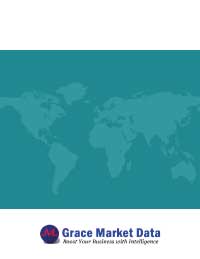North America automated 3D printing market is projected to grow by 34.4% annually in the forecast period and reach $3,512.5 million by 2030, driven by the low cost of production, accuracy, and capacities for increased production from more advanced automated 3D printing workflow and automated manufacturing-related functionalities.
Highlighted with 24 tables and 46 figures, this 114-page report “North America Automated 3D Printing Market 2022-2030 by Offering, Printing Material, Process, Industry Vertical, and Country: Trend Forecast and Growth Opportunity” is based on comprehensive research of the entire North America automated 3D printing market and all its sub-segments through extensively detailed classifications. Profound analysis and assessment are generated from premium primary and secondary information sources with inputs derived from industry professionals across the value chain. The report is based on studies on 2019-2022 and provides forecast from 2023 till 2030 with 2022 as the base year. (Please note: The report will be updated before delivery so that the latest historical year is the base year and the forecast covers at least 5 years over the base year.)
In-depth qualitative analyses include identification and investigation of the following aspects:
- Market Structure
- Growth Drivers
- Restraints and Challenges
- Emerging Product Trends & Market Opportunities
- Porter’s Fiver Forces
The trend and outlook of North America market is forecast in optimistic, balanced, and conservative view by taking into account of COVID-19 and Russia-Ukraine conflict. The balanced (most likely) projection is used to quantify North America automated 3D printing market in every aspect of the classification from perspectives of Offering, Printing Material, Process, Industry Vertical, and Country.
Based on Offering, the North America market is segmented into the following sub-markets with annual revenue ($ mn) for 2022-2030 included in each section.
- Hardware
o 3D Printers
o Robots
o Other Hardware
- Software
- Service
o Deployment & Integration
o Support & Maintenance
Based on Printing Material, the North America market is segmented into the following sub-markets with annual revenue ($ mn) for 2022-2030 included in each section.
- Automated Polymer AM
- Automated Metal AM
- Other Automated AM
By Process, the North America market is segmented into the following sub-markets with annual revenue ($ mn) for 2022-2030 included in each section.
- Material Handling
- Automated Production
- Part Handling
- Post Processing
- Multiprocessing
By Industrial Vertical, the North America market is segmented into the following sub-markets with annual revenue ($ mn) for 2022-2030 included in each section.
- Automotive
- Aerospace & Defense
- Healthcare
- Consumer Goods & Electronics
- Industrial Manufacturing
- Power & Energy
- Other Verticals
Geographically, the following national/local markets are fully investigated:
- U.S.
- Canada
- Mexico
For each key country, detailed analysis and data for annual revenue ($ mn) are available for 2022-2030. The breakdown of national markets by Offering, Process and Industrial Vertical over the forecast years are also included.
The report also covers current competitive scenario and the predicted trend; and profiles key vendors including market leaders and important emerging players.
Selected Key Players:
3D Systems Corporation
3Dprinteros
ABB Ltd.
Additive Industries B.V.
Additive Manufacturing Technologies Limited
Authentise Inc.
Autonomous Manufacturing Ltd.
Carbon Inc.
Coobx AG
DWS Systems
Dyemansion Gmbh
EnvisionTEC US LLC (Desktop Metal Inc.)
Farleygreene Ltd.
Formlabs Inc.
GE Additive (Concept Laser Inc.)
Manufacturing Technology Centre
Materialise NV
PostProcess Technologies Inc.
SLM Solutions Group AG
Solukon Maschinenbau Gmbh
Stratasys Ltd.
Structo Pte. Ltd.
The ExOne Company
Universal Robots A/S
Voodoo Manufacturing Inc.
(Please note: The report will be updated before delivery so that the latest historical year is the base year and the forecast covers at least 5 years over the base year.)



